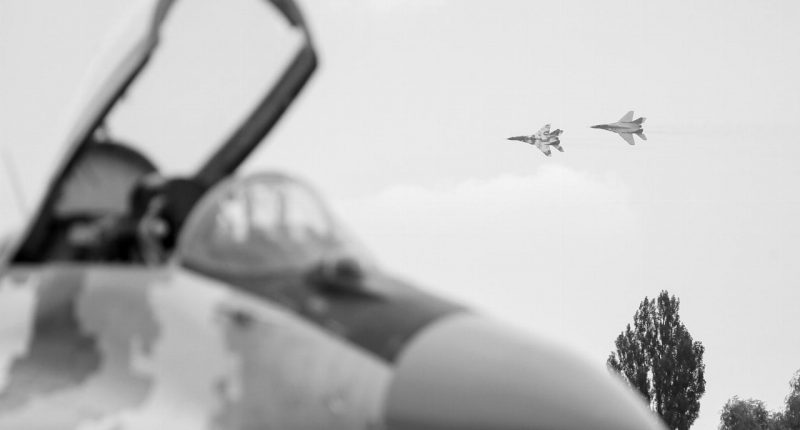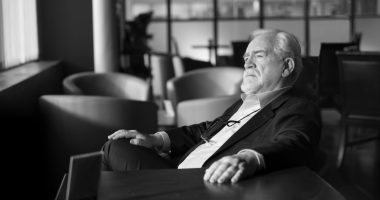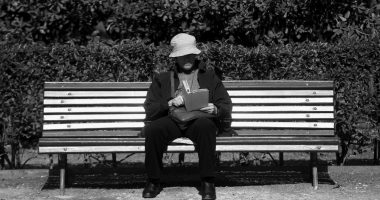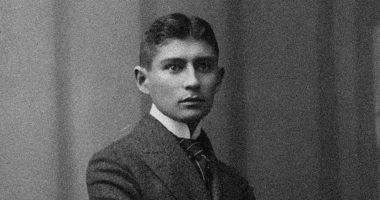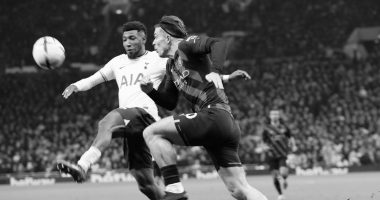As I write this, we are about two weeks into Russia’s depraved invasion of Ukraine. Vladimir Putin’s insane fantasy of a quick and easy victory was dashed from Day One as the brave folk of cities under attack showed in no uncertain terms that they would, in fact, rage against the dying of the light. It’s an inspiring level of civil heroism, but it’s also angered the increasingly desperate Russian leader, who’s since rained a hellfire of missiles on almost every inch of Ukraine, residential buildings and hospitals included.
Putin’s actions are, in every conceivable sense, unforgivably evil. Thousands have died already, and there is no telling how many more innocent lives will be snuffed out in the name of greed and insanity. But among it all, perched awkwardly between the glory of life and terror of death, is a shard of that holy light we know to be very much alive. It is, they say, the Ghost of Kyiv.
After Russia launched its all-out attack in the tense and early hours of Thursday, February 24, one of the first major pieces of news to come out was that a number of Russian planes had been downed. “At least six planes, two helicopters and dozens of enemy armoured vehicles have been destroyed,” Ukraine’s Defence Ministry said. Not only was the demise of each of those planes attributed solely to an unnamed Ukrainian pilot of a MiG-29 fighter jet, but they are said to have taken place — all of them — within a mere 30-hour period.
By the next day, social media was awash with praise for the Ghost of Kyiv, paired in many cases with alleged footage of his heroic dogfighting. People from all corners of the world fawned over this new and mysterious saviour — a sort of militarised Superman; bold in his aerial endeavours, flawless in his delivery of results, and here to save the goddamn day.
On February 26, former Ukrainian President Petro Poroshenko posted on Twitter a photo he claimed to be of the Ghost of Kyiv, saying that “With such powerful defenders, Ukraine will definitely win!” Likewise, the Security Service of Ukraine said in a Facebook post on February 28 that the tally of downed planes had jumped from six to 10 — making the Ghost of Kyiv, in this war alone, a double-ace pilot.
He is, in effect, Ukraine’s very own God of the Sky. He is the all-soaring, all-shooting knight in aerodynamic armour, the Big Daddy embodiment of human resistance. He is death from on high.
He is also, sadly, understood by most to be fake; a morale booster for Ukrainians in the face of Russia’s mighty (as in: bumbling, unorganised, shambolic) military.
One of the most-widely shared videos was found to be a sequence from Digital Combat Simulator World, a free-to-play battlefield game developed by Eagle Dynamics and released in 2008. Poroshenko’s photo was posted three years ago by Ukraine’s Defence Ministry, and shows a pilot about to embark on a test flight with a new helmet. That same photo was used in the Facebook post by the Security Service of Ukraine, which remains one of the only official channels to mention the Ghost of Kyiv (the Defence Ministry made reference to an “air avenger” on February 25).
Even the Ukrainian Government itself has come under fire, faced with accusations that the Ghost of Kyiv is nothing but a hammed-up attempt at counter-propaganda, despite many of the alleged videos appearing before the myth made its way into official sources of news. The reality, I suspect, is that Ukrainian officials got wind of the legend and — like everyone else — hitched its wagon to the breakaway horse. After all, why not?
Why not indeed. Does it really matter if the Ghost of Kyiv is real? The Ukrainian people already have a figure of defiance incarnate to rally around in President Volodymyr Zelensky, who — when he’s not dodging assassination attempts — is dressed in military fatigues with a gun at the ready. To imagine Scott Morrison or Joe Biden or Boris Johnson in the same situation demands a hefty degree of mental gymnastics, and should remind us of what true leadership looks like when the next election rolls around.
So, even if the Ghost of Kyiv is real, even if he’s downed 10 Russian planes — or more, who knows? — the matter of his existence remains unchanged. The Ghost of Kyiv is not a pilot or a soldier. He’s not a person. Hell, he’s not even a ghost. He’s not a plant or an animal or a weapon of any kind . . . The Ghost of Kyiv is an idea.
The French philosopher Descartes built his reputation as a foundational thinker on the concept of radical doubt — that nothing perceived or sensed is necessarily true. He proposed that the mind and body were two separate entities. The body, however, is less certain because, like everything else in the world, it can only be sensed because there is a mind to sense it. Cogito ergo sum — I think, therefore I am.
To extrapolate that theory is to reaffirm that it doesn’t matter whether the Ghost of Kyiv is physically real — simply believing is enough. In fact, the Ghost of Kyiv is just the moniker given to what might, under other circumstances, be called faith or hope or patriotism; whatever it is that makes a Ukrainian a Ukrainian.
Putin could never have known, but it must be apparent now that he’s waged war on an enemy incapable of death. He can take the land, yes. He can take critical infrastructure and government buildings, install his little puppet regime and declare victory. But he can never take Ukraine.
The Ghost of Kyiv is a manifestation of the collective Ukrainian mind. It is that unnameable quality which moves average Ukrainian people to block whole columns of Russian tanks with nothing but a stony glare and a few bags of sand. It’s what drives entire communities to mass-produce Molotov cocktails, and then lob them at invaders from the window of a speeding car. It’s what prods them to move active mines off the road with their bare hands, and it cannot be killed.
It is what has already ensured that Ukraine will win the fight whether Russia takes the country or not. For as long as there is blood in Ukrainian veins and air in Ukrainian lungs, the Ghost of Kyiv will rage on.
